Returned Missioner News – Page 4
Thomas Gould is MOGC’s new communications manager
October 2022: Thomas Kenney Gould, son of returned missioners Deirdre Cornell and Kenney Gould (Class of 2002 – Mexico), who, together with his parents and four siblings, served in Oaxaca, has been hired as the new communications manager of the Maryknoll Office for Global Concerns. He joined the office in October 2022 after completing an Episcopal Service Corps service year in upstate New York. There, among other things, he was an aide to the Episcopal Diocese of New York’s Creation Care Committee, which writes diocesan and church-wide resolutions, advocates for green policies and helps the 180-plus parishes in the diocese set goals and meet standards set by the Paris Climate Accords.
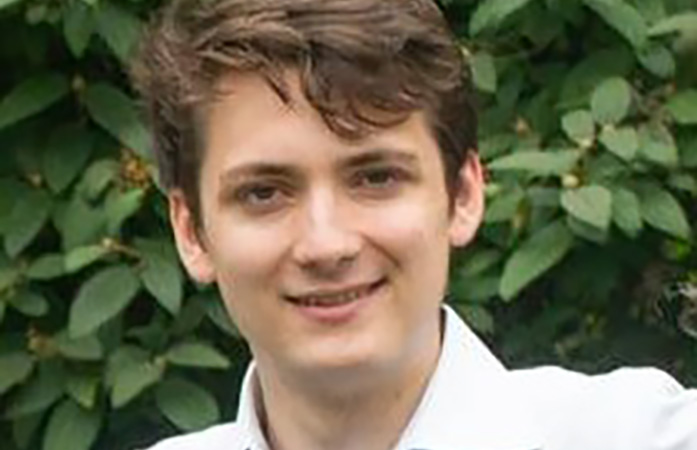
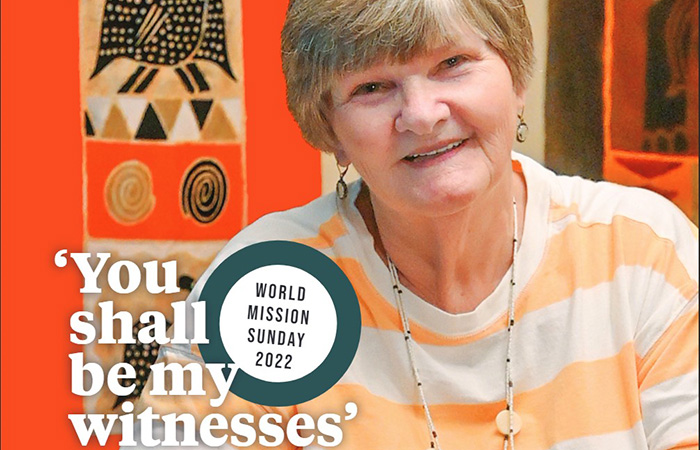
Dianne Mistelske, Liz Mach featured in magazine
October 2022: Dianne Mistelske (Class of 1980 – Tanzania) and Liz Mach (Class of 1976 – Tanzania, United States and Sudan) were featured in the special World Mission Sunday edition of the Central Minnesota Catholic, the magazine of the Diocese of St. Cloud, Minnesota. Dianne told the magazine that people often think that mission is something only others can do. “But just by your presence, you are a witness to the Gospel — just supporting things that you know would be the things Jesus would tell you to do,” she said. Today Dianne remains involved with a lay mission group in Florida, where she lived before returning to Minnesota. Liz, who with her 44 years of service remains the longest serving Maryknoll lay missioner, continues to work for Maryknoll Lay Missioners, writing grants and helping to coordinate returned lay missioners. “With Maryknoll you have a whole family out there, a network of people,” she said. “They’re just great to be around and I’m grateful for that side of it. That’s helped me in coming back.”
Betty Anne Donnelly co-edits Orbis book
October 2022: Elizabeth “BA” Donnelly (Class of 1980, Peru) is co-editor of the Orbis books publication of the first of three volumes (one for each lectionary cycle) of Catholic Women Preach: Raising Voices, Renewing the Church. The book goes on sale Friday, October 13, and all proceeds go to Catholic Women Preach, where Betty Anne is a member of the steering committee. Father James Martin, SJ, has called the book “a tremendous resource for the church,” and Barbara Reid, OP, president of Catholic Theological Union, writes in the foreword, “As you listen with the ear of your heart to the wisdom of women, may you, too, be emboldened to preach the word with persistence at all times and in all ways.”
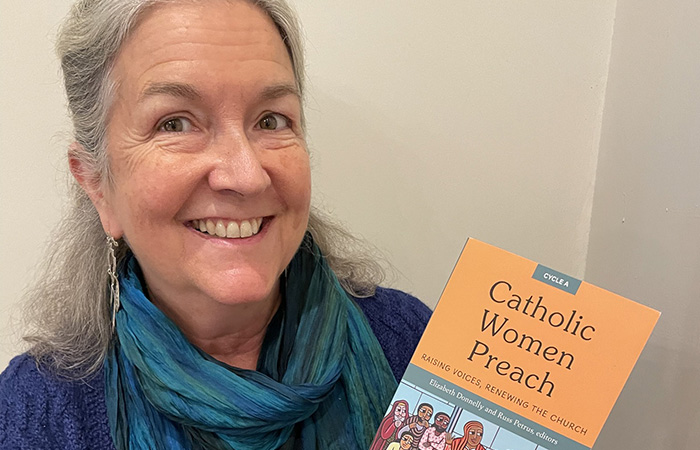
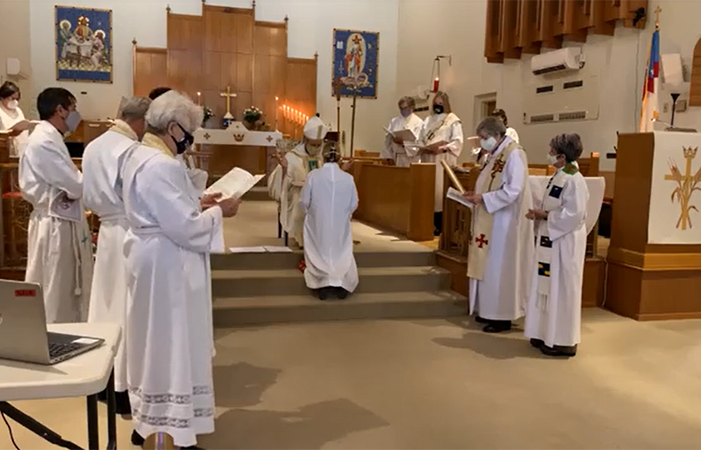
Katie Hudak gets full-time position as Episcopal priest
October 2022: Katie Hudak (Class of 1988 – Venezuela, Mexico) shares: I am going to be moving to Marfa, Texas, with my husband to take up a full-time position as an Episcopal priest with the Episcopal Diocese of the Rio Grande. I will be serving five churches in the Big Bend area of Texas. I was ordained on August 1, 2021 and was filling in as needed in El Paso, Texas, churches on Sundays, as well as working for the Diocesan Migrant and Refugee Services for the Catholic Diocese of El Paso as a grant writer and volunteer coordinator.
Sonny & Hong Nguyen, Greg Darr at ‘Marian Days’
August 2022: After a two-year hiatus due to the COVID pandemic, the U.S. Catholic Church’s largest annual gathering of Vietnamese American Catholics was back this year in Carthage, Missouri. Returned missioner couple Sonny and Hong Nguyen (Class of 2015 – Bolivia) represented and networked for Maryknoll Lay Missioners, while in the booth next door, returned missioner Greg Darr (Class of 1992- Kenya) helped the Maryknoll Fathers and Brothers spread the word. While numbers were still down from their pre-pandemic peak, an estimated 30,000 were in attendance at Marian Days this year.
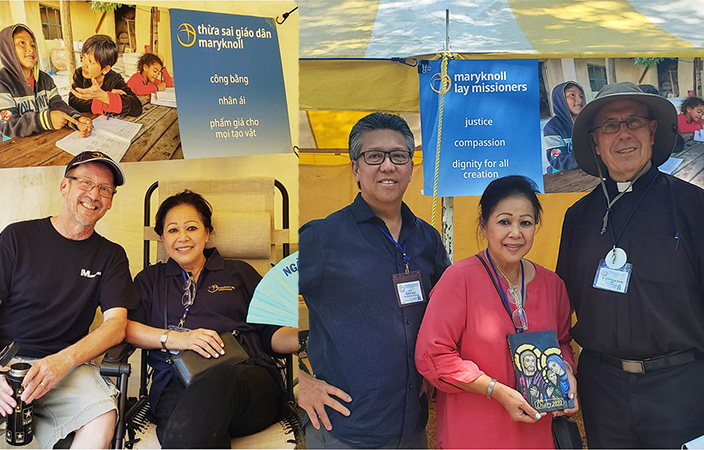
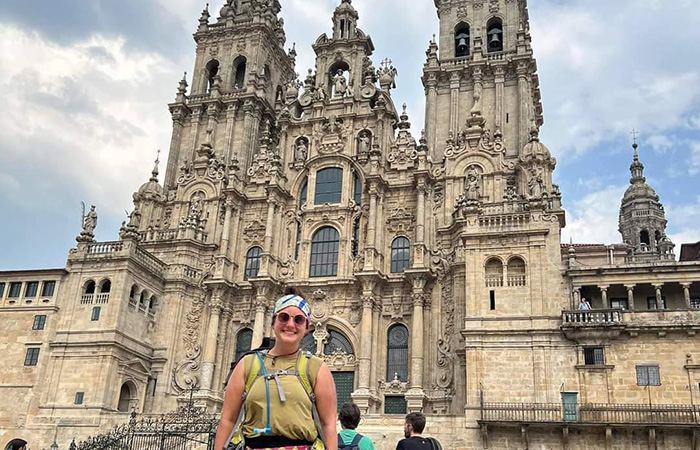
Katie Coldwell completes Camino
August 2022: On August 10, Katie Coldwell (Class of 2010 – Brazil) became the latest Maryknoll returned missioner to complete the Camino de Santiago, the ancient pilgrimage route to Santiago de Compostela, Spain. She shared on Facebook: “Over the last 15 days, I have walked over 300 kilometers along the coasts of Spain and Portugal, following the Camino to Santiago de Compostela! Today, I finally arrived. I cannot thank God enough for giving me the physical, mental and emotional strength, along with mi familia increíble y nuevos compañeros inolvidable! Tengo memorias y aprendizajes por siempre! Gracias a dios por todo!”
Returned missioners earn bounty of awards for Maryknoll
July 2022: Returned missioners Deirdre Cornell (Class of 2002 – El Salvador and Mexico), Lynn Monahan (Class of 1990 – Peru) and Carolyn Trumble (Class of 2011 – Brazil) won 14 of the combined 72 Catholic Media Association awards given to Maryknoll Magazine, Revista Misioneros and Orbis Books this year. Awards were presented at the association’s July 4-7 conference in Portland, Oregon. Maryknoll lay missioners and returned Maryknoll lay missioners either wrote or were the subjects of 20 of the award-winning magazine articles.
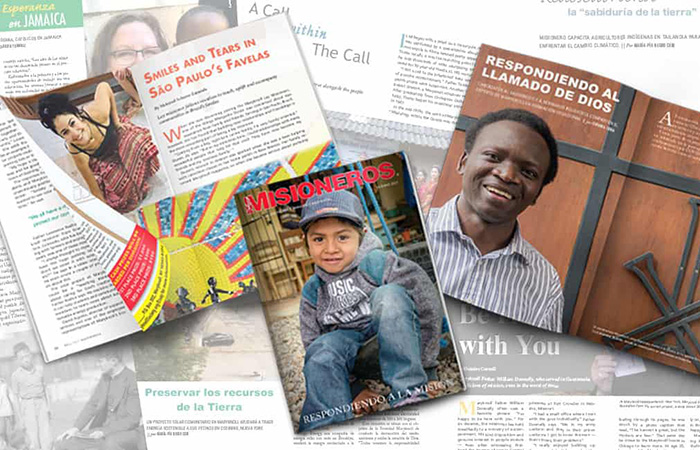
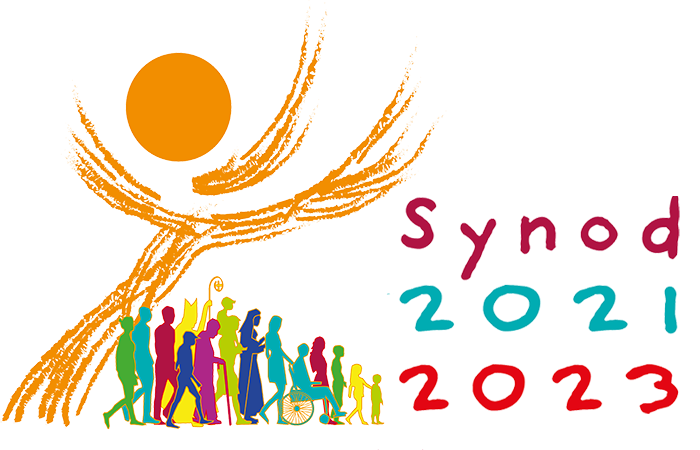
Synod synthesis envisions small ‘mission communities’
July 2022: On July 11, the Maryknoll Committee of 12, which had organized all-Maryknoll synodal zoom gatherings, sent its synthesis to the leaderships of the four Maryknoll expressions and to the Synod Office in Rome. Returned Maryknoll lay missioner Bob Short (Class of 1978 – U.S., Ecuador and Bolivia) represented the Maryknoll Affiliates and joined lay missioners Marj Humphrey, Kylene Fremling and Sami Scott in this unique Maryknoll contribution to the Catholic Church’s worldwide synodal process. The report said, “Maryknoll’s growth means allowing the love we have known in all corners of the world, to nourish and build a One Earth Community in which all of us are essential and equal parts.” The committee recommended “to form and experience small intentional mission communities … of Maryknollers … from all four expressions” and concluded, “Maryknoll needs to be intentionally synodal, always humble and open to learning. No one of us has the whole Maryknoll charism; together we all have the Maryknoll charism.”
Mike Gable quoted in U.S. Catholic magazine
June 2022: “Mission today is reciprocal,” Mike Gable (Class of 1988 – Venezuela), director of the mission office for the Archdiocese of Cincinnati, is quoted in the June 2022 issue of U.S. Catholic. In the article about immersive mission experiences, Mike stresses that mission isn’t just about work — it’s about getting to know others who are different from us. He emphasizes that if we don’t look at our mission efforts as mutual, then we are back in the era of colonialism and racism and a white savior mentality. If heroism is driving your desire to go on a mission trip, he says, then you should stay home. Mike is convinced that developing friendships with people of other cultures is one of the few ways to influence a change in attitude. “Oftentimes that means stepping out of your comfort zone, walking with people who are struggling, and suffering with them just as Jesus did,” he says. “Once you do that, you can’t vote the same way. You can’t think the same way.” Once we move beyond pity and charity, we can begin to think more deeply about what the root causes of poverty are among these groups and remain committed to this long-term solidarity after the immersion is over — through civic engagement, career adjustments, or voting choices.
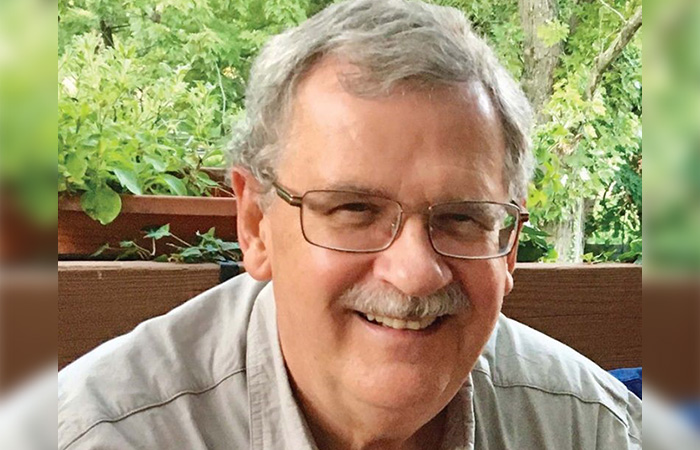
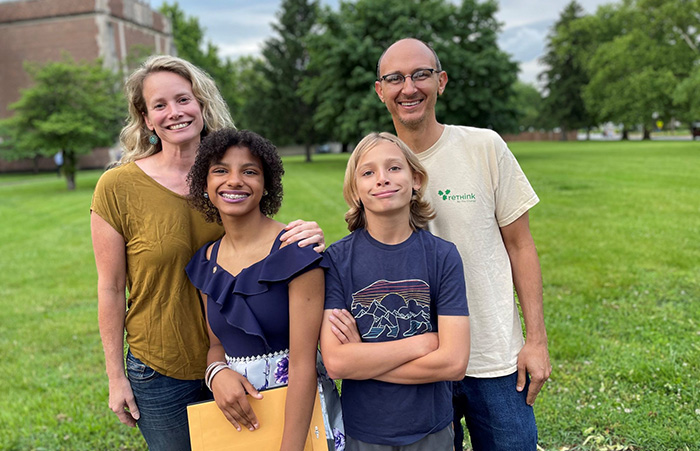
TJ Hellman continues grassroots involvement
June 2022: While a missioner in El Salvador, T.J. Hellman (Class of 1999) worked with the local community of San Ramón on local concerns and needs. His main project was helping to open a youth center with a focus on youth empowerment and environmental sustainability. They organized hiking trips, fixed bikes, ran a secondhand store, printed t-shirts, made recycled paper, and gave talks on environmentalism to local schools. Now living with his wife, Rachel, and two children, Gloria and Elias, in Terre Haute, Indiana, T.J. is on the board and volunteers with Rethink, a grassroots non-profit working on sustainability. Rethink has community gardens, a zero-waste shop and an upcycling center where plastics are repurposed. T.J. says his interest in grassroots efforts started in El Salvador: “I loved learning from the people, and that lesson has stuck with me.” He is a web developer and graphic designer for a worker-owned cooperative that works with social justice organizations. Although the family will move to Indianapolis soon, T.J. intends to continue working for grassroots organizations there, “wherever I can best fit in to get involved.”
Richard Ross completes Camino
May 2022: Richard Ross (Class of 2012 – Tanzania) writes: Last September I went back to Spain to finish the French Camino I had started in September 2019. Because of the COVID-19 outbreak, I had to wait before I could go back. On my first trip I had walked 340 of the 500-mile walk. The 2011 movie, “The Way” had inspired me to make this walk and to follow St. James’ way to the “end of the earth” to spread the Gospel in Spain. On Sept. 15 I took a taxi to Hospital de Orbigo, where I had ended my first walk in 2019 and started on the second part of my Camino to Santiago. Santiago (St. James in Old Spanish) is the name of the town and the cathedral where the remains of St. James are located in the crypt of the church. On the way, I walked up to the Iron Cross (Cruz de Ferro), the highest point of the Camino anywhere, where pilgrims drop a stone representing some cross they are leaving to God to help them carry. To finish my Camino I walked 13 of the 17 days that I was in Spain. The total on the second part of the walk was 178.31 miles, averaging 13.7 miles/day in a total of 67 hours walking, averaging 2.66 miles per day.
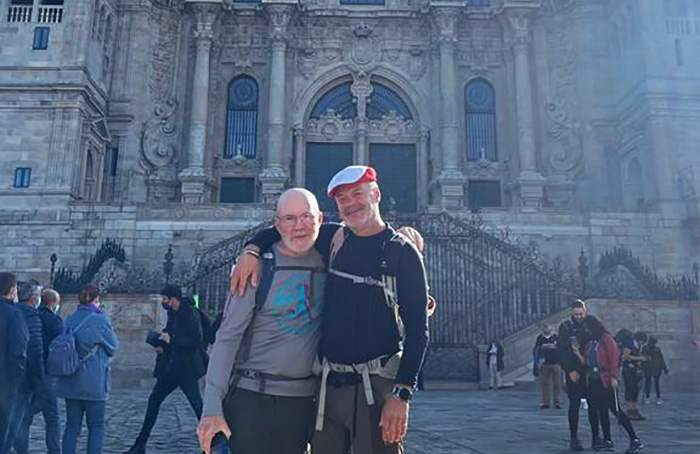

Katie Hudak ordained as Episcopal priest
March 2022: Katie Hudak (Class of 1988 – Venezuela, Mexico) shares: My almost ten years as a Maryknoll lay missioner launched me to work with nonprofits that have a focus on immigrants. I worked at Borderlinks along the Arizona-Mexico border, and Las Americas Immigrant Advocacy Center in El Paso, Texas. Most recently I served as the director of development at Diocesan Migrant & Refugee Services in El Paso, where we worked to “provide immigration legal services, advocacy, and community outreach to protect immigrants’ rights and advance justice in the spirit of the Gospel.” Since my return from Venezuela and Ciudad Juárez in Mexico, I have had bumps, bruises, and scrapes along the way, but mostly I have been incredibly blessed! Thanks to Maryknoll, I met my husband, Miguel Angel, in Ciudad Juárez. I have been able to progress in my faith journey over the years as well. Most recently my faith journey compelled me to become an Episcopal priest! I was ordained on August 1, 2021 and am currently serving to fill in as needed in El Paso churches on Sundays. My years as a missioner have brought me to where I am today — always a missioner!




